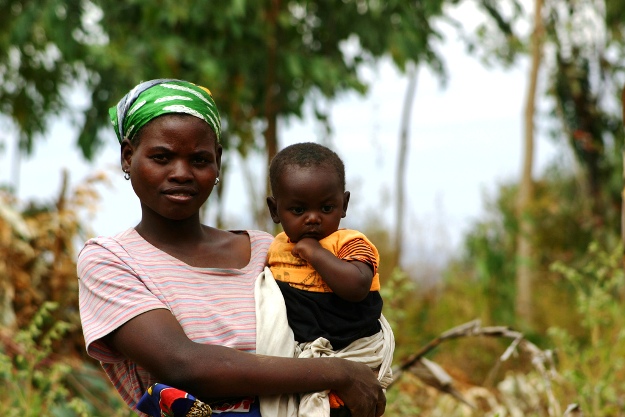High rates of maternal mortality, poor education, increasing levels of sexual violence and the prejudices of patriarchal societies are limiting the potential of women in Africa. But if governments implement the commitments and laws they have subscribed to, then progress can be made, writes Bience Gawanas, African Union Commissioner for Social Affairs
The years 2010 to 2020 are the African Women’s Decade. The importance of the decade is that it provides us with a horizon. Many times when countries adopt a policy instrument the time scale for its implementation is indefinite, but the decade is focusing us, telling us that in ten years time we have to report on progress.
This year the theme is maternal health and mortality. It is a shame for Africa, that in this century women are still dying while they are giving life. The African Union has developed many policy instruments in this area, including the Maputo Plan of Action for Sexual and Reproductive Health and Rights (since its adoption in 2006, many countries have developed roadmaps on maternal health) and the Campaign for Accelerated Reduction of Maternal Mortality in Africa (CARMMA). Launched in 2007 at the Minister of Health Conference, CARMMA is an advocacy tool to help member states translate their continental commitments into local action – so far, 24 countries have signed up to the campaign.
Is Africa going to meet the Millennium Development Goal on maternal health? This is not an easy question to answer. There are many, many factors at play. Most importantly, for us as Africans, we need to start taking ownership of our problems and also begin to come up with solutions to these problems. If we mobilise our communities, if we mobilise our stakeholders within our countries, there are some actions that do not require money – they need people’s involvement and the understanding that women do not need to die in childbirth. Simple interventions can make a difference and if we commit ourselves and if we have the will and the dedication to save just one or two more lives then I think we can meet the MDG.
It is absolutely critical that women and girls have access to education because if you are educated you will make choices – better choices – over your own life. I am imparting to my daughters and my nieces, that whatever you do, education always holds the key to your future. It is a negotiating tool for you, whether it is with your boyfriend, your husband or the system – it provides you with the necessary skills to be able to engage in society.
Today we have a woman president in Africa – Ellen Johnson Sirleaf of Liberia – and so no one can ever tell us that this is not possible. This is really just the beginning. But we should not measure women’s progress solely by the political positions that they hold in parliament or cabinet. We need to get more women into local government. We need more ombudswomen, more female Attorney Generals, and more women in leadership roles across the board and at the different levels. Now if you have women in these kinds of position they can make a lot of changes that even members of parliament cannot make. This is how we will create the critical mass we need. But it is still important that women are represented in cabinet and parliament because, whether we like it or not, that makes women visible, that turns women into the role models that we are looking for.
I think the big challenge is that we are still fighting very traditional societies that have historically discriminated against women. We are still facing a situation of patriarchy, of discrimination against women, the fact that women have a low status in our society. If we take the problem of the use of sexual violence in conflict, for me it is another aspect of this male/female issue. It is being used as a weapon of war. It is a method of dehumanising women, of men trying to use the power of sex to gain control over women. And still we have sexual violence being used against women in countries that are not in a conflict situation.
So, we have to ask: How do you prevent? How do you protect? How do you punish? First, we need to get governments to start recognising these things are happening. We need to focus on human rights training for the military, the police and peacekeepers. We also have to make sure that in the peace negotiations we look beyond who should be in government and consider post-conflict reconstruction – not just building or rebuilding structures, but also rebuilding the hearts and the minds of people. And women absolutely have to be involved in these processes.
There is always going to be a gap between what I call substantive equality and formal equality. Across the continent many of our governments have adopted constitutions that speak about women’s rights and have acceded to international treaties and conventions that embody gender equality. We have laws in our countries that combat discrimination against women. The problem lies in the translation of these instruments and commitments into meaningful changes for women. If we have the political will to make the change then we can make the change.






